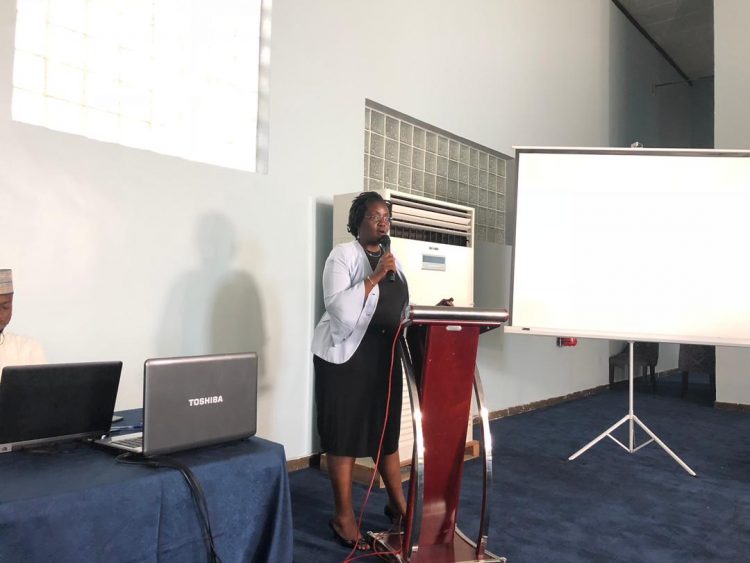WHO Immunisation Team Lead, Dr. Fiona Braka, said COVID-19, being a new disease, has no ready vaccines, adding that public safety was the key consideration of WHO campaign for now.
“COVID-19 is a new disease, and as such, there are no ready vaccines available to be deployed for the control of the pandemic.
“However, a lot of research and scientific works are ongoing to develop vaccines, but these usually take time to ensure that it is safe for use in the wider population and also effective for control of the pandemic.
“Public safety is a key consideration in this process,” the WHO team lead said.
Braka said that the claims of vaccines developed for the COVID-19 were untrue and not to the knowledge of the WHO.
“WHO is not aware of vaccine for COVID-19 in Nigeria.
“There is a large scientific study (clinical trial) involving many countries to review the effectiveness of some drugs for the treatment of COVID-19 going on at the moment.
“The result of this clinical trial will help understand the efficacy of these drugs and may inform the review of the case management guidelines,” she said.
On the assessment of Nigeria’s performance in curbing the spread of COVID-19, Braka said that the world health body partnership with the Nigeria Centre for Disease Control (NCDC) had been helpful.
“Nigerian Government through the Nigerian Centre for Disease Control (NCDC) and supported by WHO had developed a preparedness plan for COVID-19 and was implementing this plan when the first case was reported.
“A network of five COVID testing laboratories was set up before the confirmation of the first case and has since been expanded to six additional laboratories over the past two weeks, making a total of 11 laboratories currently.
“From the onset of the outbreak, WHO has developed clinical guidance with input from clinicians around the globe, including in Nigeria.
“These resources include the updated Clinical Management Guidance for COVID-19, the Clinical Care training materials, and the Global COVID-19 Clinical Data Platform, the data tool which makes it possible for WHO to collect core clinical data from hospitalised patients to inform understanding of COVID-19.
“The guidance is continually reviewed, as more evidence become available.
The government has scaled up isolation facilities capacity at state level to ensure readiness to receive COVID patients,” she said.
Braka said that there would be more close observation, while the guidelines of operations of all the agencies assisting in the curbing of COVID-19 would be updated.
“The guidance of the clinical data platform will be continually reviewed, as more evidence become available.
“The government has scaled up isolation facilities capacity at state level to ensure readiness to receive COVID patients and all these helped with the containment of the first cluster of cases.
“With the return of more Nigerians from countries where the outbreak was reported, more cases have been reported and these have been more challenging to contain.
“The government at national and state levels have provided leadership for the response and more needs to be done at the state level as the cases continue to increase,” she said.
Braka, however, listed the key areas of interventions for curbing COVID-19 to include non-pharmaceutical, such as social distancing, surveillance, contact tracing, among others.
“The key areas of interventions required now are non-pharmaceutical interventions like social distancing, handwashing and respiratory hygiene.
“Others, in addition to rigorous surveillance, are case identification, laboratory diagnosis, contact tracing and isolation and care for all confirmed cases.
“Physical distancing is one of the recommended strategies for preventing human to human transmission.
“The lockdown does facilitate physical distancing and is a welcome intervention.
“However, physical distancing alone will not stop the spread, but needs to be combined with other recommended strategies: testing, isolation of patients, contact tracing and quarantine,” she said.
The WHO official said the United Nations (UN) in Nigeria had launched a basket fund to help fight the deadly viral infection, adding that other donor agencies had also launched trust fund intervention.
“The United Nations in Nigeria has set up a Basket Fund that was launched by the SGF (Secretary to the Government of Federation) last week. Resources from the Basket Fund are supporting critical aspects of the response.
“Donor agencies and governments have been contributing to support WHO’s work in responding to the COVID-19 pandemic globally.
“Funds have been made available to WHO Nigeria through the Regional Office and Headquarters in Geneva which is financing the WHO’s current support to the response in Nigeria.
“We are also grateful to other partners who have supported WHO, Nigeria directly,” she said.
Braka said that WHO had also deployed some team of experts to other African countries.
“WHO is supporting countries globally with response to the pandemic. From the WHO Regional Office for Africa, four experts have been deployed to Nigeria currently.
“There is also remote support provided by experts from the WHO Headquarters in Geneva and the Regional Office in Brazzaville.
“These are in additional to an excellent team of public health experts who already work in all 36 states and the FCT, in the different WHO, Nigeria offices.
“WHO’s extensive Polio Programme resources have already been re-purposed and deployed, and have been crucial in supporting all affected states to mount an initial response, she said.
Braka said that states that had yet to report any confirmed case, there were resources engaged in preparatory activities and surveillance.
“WHO will continue to support Nigeria throughout the response and even during the recovery phase, she said.
NAN

